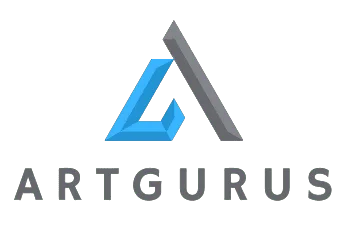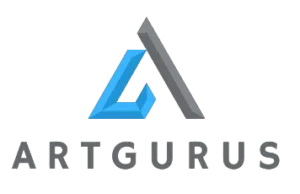Introduction
In a world where inclusivity, social media, global world concept, diversity and more emphasis on human rights are gaining recognition and importance, it is essential that we ensure every individual has the opportunity to live a fulfilling life, regardless of their abilities or disabilities. Down Syndrome, a genetic condition that affects cognitive and physical development, is a prime example of this challenge. Embracing a public-private partnership to care for and support Down Syndrome children can bring about transformative changes in their lives, offering them a brighter future full of opportunities and possibilities.
Understanding Down Syndrome
Before delving into the concept of a public-private partnership for Down Syndrome care, it’s crucial to understand the condition itself. Down Syndrome is a chromosomal disorder caused by the presence of an extra copy of chromosome 21. This additional genetic material affects the way a child develops, resulting in both cognitive and physical challenges. Individuals with Down Syndrome typically have mild to moderate intellectual disabilities, and they may also experience various health issues, including heart defects, respiratory problems, and sensory impairments.
Challenges Faced by Down Syndrome Children
Down Syndrome children, like all individuals, deserve the chance to lead fulfilling lives and reach their fullest potential. However, they often encounter unique challenges that can hinder their development and overall well-being. Some of these challenges include:
- Limited Educational Opportunities: Traditional educational settings may not cater to the specific needs of Down Syndrome children, making it difficult for them to access quality education.
- Healthcare Costs: The medical needs of individuals with Down Syndrome can be substantial, placing a financial burden on their families.
- Social Stigma: Discrimination and misunderstanding can lead to social isolation and exclusion, impacting their mental and emotional well-being.
- Employment Opportunities: As they grow into adulthood, Down Syndrome individuals often face limited employment prospects, further affecting their independence and self-esteem.
- Family Support: Caring for a child with Down Syndrome can be emotionally and financially draining, putting stress on families.
Public-Private Partnership: A Collaborative Solution
To address these challenges and create a brighter future for Down Syndrome children, a collaborative approach involving both the public and private sectors is vital. Here’s how such a partnership can benefit these individuals:
- Access to Specialized Education: Through collaboration, educational institutions can develop specialized programs and curricula that cater to the unique learning needs of Down Syndrome children. This ensures they receive the quality education they deserve, setting the foundation for lifelong learning and growth.
- Affordable Healthcare: Public-private partnerships can lead to subsidized healthcare programs for Down Syndrome individuals, easing the financial burden on their families and providing access to crucial medical services.
- Promoting Inclusivity: Private sector organizations can play a crucial role in raising awareness and promoting inclusivity for Down Syndrome individuals. Through public campaigns and corporate social responsibility initiatives, they can help reduce stigma and discrimination.
- Employment Opportunities: Private companies can collaborate with public agencies to create vocational training programs and job placement services, increasing employment opportunities for Down Syndrome individuals and fostering their independence.
- Respite Care Services: Public-private partnerships can fund respite care services, giving families of Down Syndrome children the support they need to recharge and maintain their own well-being.
Case Study: “Down’s Haven” – A Successful Public-Private Partnership
One inspiring example of a successful public-private partnership for Down Syndrome care is “Down’s Haven,” a non-profit organization founded in partnership with local government agencies and private businesses. “Down’s Haven” offers a holistic approach to support Down Syndrome individuals and their families. Here’s how they do it:
- Educational Programs: Down’s Haven collaborates with local schools to provide specialized education for Down Syndrome children. This includes dedicated classrooms, trained teachers, and individualized learning plans.
- Healthcare Support: The organization partners with local healthcare providers to offer affordable medical services, including regular check-ups, therapy sessions, and access to specialists.
- Awareness Campaigns: Down’s Haven conducts public awareness campaigns with support from private sponsors. These campaigns challenge stereotypes, raise awareness about Down Syndrome, and foster a more inclusive community.
- Employment Initiatives: Private companies in the region partner with Down’s Haven to create job opportunities and internships for Down Syndrome adults. This not only empowers these individuals but also enriches the local workforce with diversity.
- Family Support: Respite care services are available to families, allowing them to have a break from caregiving responsibilities and focus on their own well-being.
The Impact of “Down’s Haven”
The success of “Down’s Haven” demonstrates the potential of public-private partnerships in improving the lives of Down Syndrome children. Here are some of the significant impacts the organization has achieved:
- Empowered Individuals: Down’s Haven has empowered Down Syndrome individuals to develop their skills, pursue their passions, and lead fulfilling lives.
- Inclusivity and Awareness: Through their campaigns, the organization has significantly reduced social stigma, fostering a more inclusive society.
- Strengthened Families: Families have reported reduced stress levels and improved overall well-being, thanks to the support provided by Down’s Haven.
- Community Integration: Down Syndrome individuals are now more integrated into the local community, participating in various activities and social events.
Conclusion
Nurturing Down Syndrome children through public-private partnerships is not just a moral obligation but also a strategic investment in a more inclusive and equitable society. As demonstrated by “Down’s Haven,” collaborative efforts between the public and private sectors can transform the lives of these individuals, offering them the support, education, healthcare, and opportunities they need to thrive.
It is imperative that more regions and communities around the world embrace such partnerships, recognizing the potential within every individual, regardless of their abilities or disabilities. By doing so, we can pave the way for a brighter future where Down Syndrome children are not limited by their condition but are empowered to reach their fullest potential, contributing meaningfully to our society.






112 responses
Thank you for your sharing. I am worried that I lack creative ideas. It is your article that makes me full of hope. Thank you. But, I have a question, can you help me? https://www.binance.info/tr/register-person?ref=W0BCQMF1
Your point of view caught my eye and was very interesting. Thanks. I have a question for you.